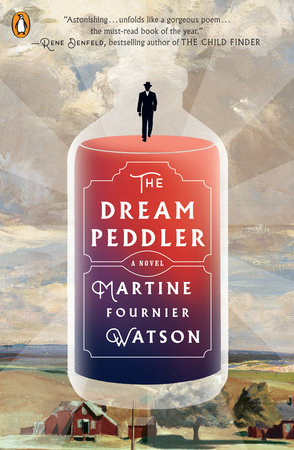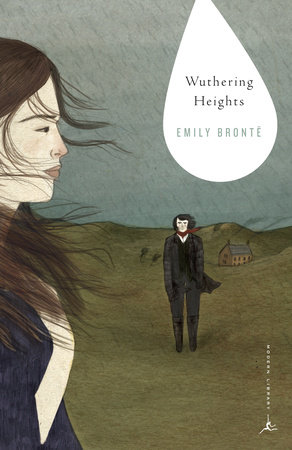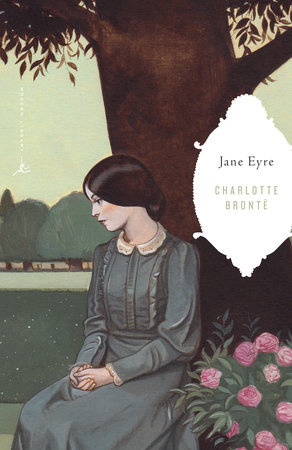Martine Fournier Watson is initially from Montreal, Canada, where she earned her graduate degree in workmanship history following a year in Chicago as a Fulbright researcher. She as of now lives in Michigan with her better half and two youngsters. The Dream Peddler is her first novel. When I began chipping away at what is currently my introduction novel, The Dream Peddler , I never really thought about to how a book loaded with dream successions may be gotten. I had no clue what number of perusers are killed by dreams in fiction, despite the fact that I can't accuse them on the off chance that they try not to react well to a long entry or part finishing unexpectedly with the trap of "and after that I woke up." Untruthfulness aside, however, I've constantly discovered that when utilized cautiously, dream arrangements can be a captivating approach to advance a story, and I surely adored consolidating them into my own book.
Buy the book
The Victorians, for example, were intrigued by dreams, and Victorian creators intuitively gotten that while dreams are frequently a scramble of things we experience amid the day, they may likewise uncover our most profound feelings of trepidation or shrouded wants. All things considered, they can give a helpful device to a writer to uncover progressively about their characters to the peruser, and frequently an approach to uncover things to us that the characters themselves don't yet intentionally figure it out.
I've completed a little research on the long convention of utilizing dreams in writing, and I'm enchanted to show this rundown of books whose writers have utilized the dreamworld astutely to reflect and investigate the cognizant existences of their characters.
Wuthering Heights by Emily Brontë
Near the beginning of Wuthering Heights, our storyteller, Mr. Lockwood, encounters a frightening dream when he is compelled to go through the night in the room that once had a place with the now long-dead Catherine. Towards the fantasy's end, the youngster Catherine endeavors to get in at his window, and he is fierce in his endeavors to keep her out. Lockwood later portrays the experience to Heathcliff as a fantasy, yet Heathcliff's frightful response makes us wonder if, actually, Catherine's phantom may be something other than an illusion of Lockwood's creative energy.
The tale's second dream originates from Catherine herself, as she portrays it to Nelly in the kitchen not long after tolerating Linton's proposition of marriage. In her fantasy, she is thrown out of paradise and tegbrrains on the field where she and Heathcliff spent such a large amount of their youth together. Her bliss at being hurled back to earth by the holy messengers addresses her of her heart's inclination for Heathcliff over Linton. What is most intriguing about this fantasy, nonetheless, is its planning, as her portrayal of it sets off the greatest defining moment in the book: Heathcliff, stowing away in the shadows, just catches Catherine saying that it would debase her to wed him, and flees before she proceeds to depict the profundity of her affection for him.
Jane Eyre by Charlotte Brontë
Emily Brontë's similarly celebrated sister, Charlotte, utilizes dreams openly in Jane Eyre. One of the general subjects of this book is Jane's capacity, in spite of a troublesome youth amid which she was inclined to blustering and upheavals of inclination, to turn into the perfect Victorian lady—apparently quiet, solid sentiments constantly smothered or covered up. Along these lines, dreams offer the peruser a significant look past Jane's monitored disposition and into the feelings of dread and longings she keeps covered up.
With regards to normal superstitions of the day, dreams in Jane Eyre are additionally instruments of premonition. At whatever point one of the characters longs for youngsters, for example, they get updates on a demise in the family soon a while later. At the point when Jane dreams of youngsters, which she does more than once through the span of seven days, it likewise indicates the peruser her mystery wish to wed Rochester and become a mother.
Jane's fantasies quite often focus on this relationship and its fate, as she longs for Rochester strolling so a long ways in front of her that she can't get up to speed, or, on another event, that she is moving among the vestiges of Thornfield (another well-suited hunch) while Rochester stays just a modest bit out there. She likewise dreams that Blanche Ingram, the lady she accepts for a period has Rochester's heart, has closed the entryways of Thornfield against her.
Indeed, even after her wedding is destroyed and she flees, Jane is still tormented by dreams of being in Rochester's arms. In spite of her outward determination to cast him off perpetually, she can't quit adoring him and can't overlook him.
Rebecca by Daphne Du Maurier
Since Du Maurier's showstopper is from various perspectives a retelling of Jane Eyre, it appears to be fitting that it, as well, should open with a foreboding dream and that celebrated line: "The previous evening I imagined I went to Manderley once more." The fantasy, to which almost the whole first part is given, completes an awesome activity of setting the novel's dim state of mind, of guaging the storyteller's agitated voyage as the drive to the house in the fantasy is stifled with backwoods infringing upon it.
Dreams are utilized sparingly in this book, however to extraordinary impact. The first run through Maxim disregards his significant other medium-term, for example, her fantasies are pained. Similarly as Jane Eyre longed for Rochester, Mrs. de Winter dreams that she is strolling with Maxim in the forested areas yet can't keep up, his face constantly gotten some distance from her.
Her fantasies are additionally a successful gadget in uncovering to us how unimaginable it is for the storyteller to get away from Rebecca's frequenting. As she puts it, "Even in my contemplations, my fantasies, I met Rebecca."
Furthermore, the book closes with a progression of dreams, as it started. Pages before the peak, Mrs. De Winter spends a lengthy drive toward Manderley swimming all through awareness, and in these fantasies her association with Rebecca is additionally fixed to a stranglehold. In one, she looks down to see that her very own modest penmanship has been supplanted with Rebecca's for quite some time, inclined letters. She looks in the mirror and sees that she looks like Rebecca, as well.
This last arrangement of dreams serves to review the long dream of the opening, and advises us that Mrs. De Winter will never genuinely have the option to desert this apparition—she is as yet longing for Manderley after the occasions of the book are long past.
Wide Sargasso Sea by Jean Rhys
In Rhys' splendid postcolonial retelling of Jane Eyre from Bertha's (Antoinette's) perspective, every one of the book's three sections contains one significant dream. Antionette's first dream is short, comprising just of strolling in a backwoods, trailed by the overwhelming strides of somebody who loathes her. It serves not simply to mirror her silly understanding that the as of late liberated dark individuals of Jamaica harbor malevolence for Antoinette and her white Creole family, yet in addition to allude to her future appalling association with Rochester.
Later on, when her stepfather educates her that a suitor is coming to visit her, she longs for the woods once more. This time, the fantasy is progressively perplexing, and her hunch of her marriage is never again hidden: drove through the woods by a weird, derisive man, Antionette is unnerved yet feels she must choose the option to tail him.
When Antionette has her third and last dream in the upper room at Thornfield, a fantasy of going through the house thumping lit candles to the ground and setting window ornaments on fire, we know her plunge into franticness—regardless of whether fated or constrained upon her by situation—is finished.
1984 by George Orwell
In the Victorian and Gothic traditions, dreams allow the subconscious of a narrator who is caged by her time and circumstances to run free, and they can be used to the same effect within the similar constraints of dystopian literature. In Winston Smith’s world of Oceania, history is constantly rewritten in order to meet the needs of the present, and any sort of dissent is known as thoughtcrime against The Party. In this environment, Winston’s dreams offer him an occasional chance for freedom.
For instance, they often serve as the place in which some form of his repressed memories manages to surface. In one, he dreams of watching his mother and sister on a sinking ship; from another, he wakes with the word “Shakespeare” on his lips but without any memory of what it means. Eventually, this dream freedom triggers a conscious memory, and he wakes from a dream of his mother to remember hiding with her and his sister in underground shelters during the war.
Many of Winston’s dreams are also prophetic. He dreams of his love interest, Julia, casting off her clothes in a sunlit field that he thinks of as The Golden Country, and when he finally meets with her, that dream comes true in every detail. Seven years before the events of the novel, he dreams of a voice telling him they will meet in the place where there is no darkness, and over time he becomes convinced the voice belongs to O’Brien, the man he believes is part of an underground resistance. Unfortunately, this dream becomes reality in the Ministry of Love, where Winston is tortured. Even here, however, his dreams give evidence of the tenaciousness of hope within him: his continued dreams of being with his mother and Julia in The Golden Country offer him respite and help him heal.
The Handmaid’s Tale by Margaret Atwood
Atwood’s famous handmaid, Offred, dreams not of the future, but the past. Her life, of course, is even more repressive than Winston Smith’s, and because of this she actively tries to avoid remembering the family and friends she once had. Naturally, her former life still sometimes haunts her in her sleep. She dreams of being in the old apartment she once shared with her husband, but all the furniture is gone and none of the clothes in the closet fit her. She is also plagued by a recurring nightmare that recalls her attempt to flee with her daughter, dragging her through the bracken of a forest, pulling her down and trying to shield her, then watching her carried away, still holding her arms out toward her mother.
Offred is an openly unreliable narrator, trying to construct a life that is bearable out of one that is not. She sometimes recounts an event and then starts over, admitting the lies she has told us even as she continues to spin more of them. And this tendency, too, is reflected in dream sequences. In one instance, she has a lucid dream of waking in the morning and hugging her daughter, but is overcome with sadness because she knows it’s not real. Then, she dreams of waking from that dream to her own mother carrying a tray of food into her room. Eventually, she wakes a final time into her real life, but even then, she wonders if everything she experiences might be a delusion.
The Manual of Detection by Jebediah Berry
In this exceedingly clever, Kafkaesque detective novel, Berry leads us into a world where spies have learned to sleuth through people’s dreams. In fact, this entire book operates with a dream-like logic (it’s always raining, buildings are full of secret passages and tunnels), and it’s not always certain when one is asleep or awake.
When clerk Charles Unwin is mysteriously promoted to detective at The Agency where he works, he’s certain a mistake has been made, but in order to correct it he’ll have to hunt down his own missing boss, detective Travis T. Sivart. Eventually, it becomes apparent that Sivart may have become trapped in a dream he entered to catch a thief, and Unwin is forced to go in after him.
I don’t think there has ever been a book that uses dreaming as cleverly as this one. Lucid dreams, dreams from which one believes one has woken even as they continue, and shared dreams all play a role. In this world, dreams can even be recorded and played back to the mind of another. A most unusual take on the gumshoe detective genre!
The Dreamers by Karen Thompson Walker
In Thompson Walker’s latest gorgeous book, a small university town is hit with a mysterious sleeping sickness that appears to cause unusually vivid dreams in the infected. It begins with one student, then quickly spreads through the school and eventually, the town, with no experts able to determine how it originated, how to cure it, or how long it might last.
Thompson Walker uses many, many dreams to explore the lives of these characters alongside their waking hours, but in an interesting twist, most of the dreams we read about belong to those who are still healthy. Mei, the college student who happened to be roommates with the very first girl to fall ill, dreams of being in church with her family because she feels guilty about her behavior away from home. Ben, the young professor and new father, has nightmare after nightmare about his wife leaving him, his daughter dying. And a much older professor, Nathaniel, dreams of his partner, Henry, who no longer lives with him due to dementia.
Eventually, we do become privy to some of the dreams of the sick, and this is when things really get interesting. Thompson Walker plays with the idea of precognitive dreams and even the notion that a whole life might be lived in a dream, more real to the dreamer upon waking than the one left behind.
7 Novels About Dreams that Reveal Hidden Desires or Dark Fears
 Reviewed by Temitope oladapo
on
May 18, 2019
Rating:
Reviewed by Temitope oladapo
on
May 18, 2019
Rating:
 Reviewed by Temitope oladapo
on
May 18, 2019
Rating:
Reviewed by Temitope oladapo
on
May 18, 2019
Rating:












 DOWNLOAD MUSIC
DOWNLOAD MUSIC  WATCH VIDEO
WATCH VIDEO 





